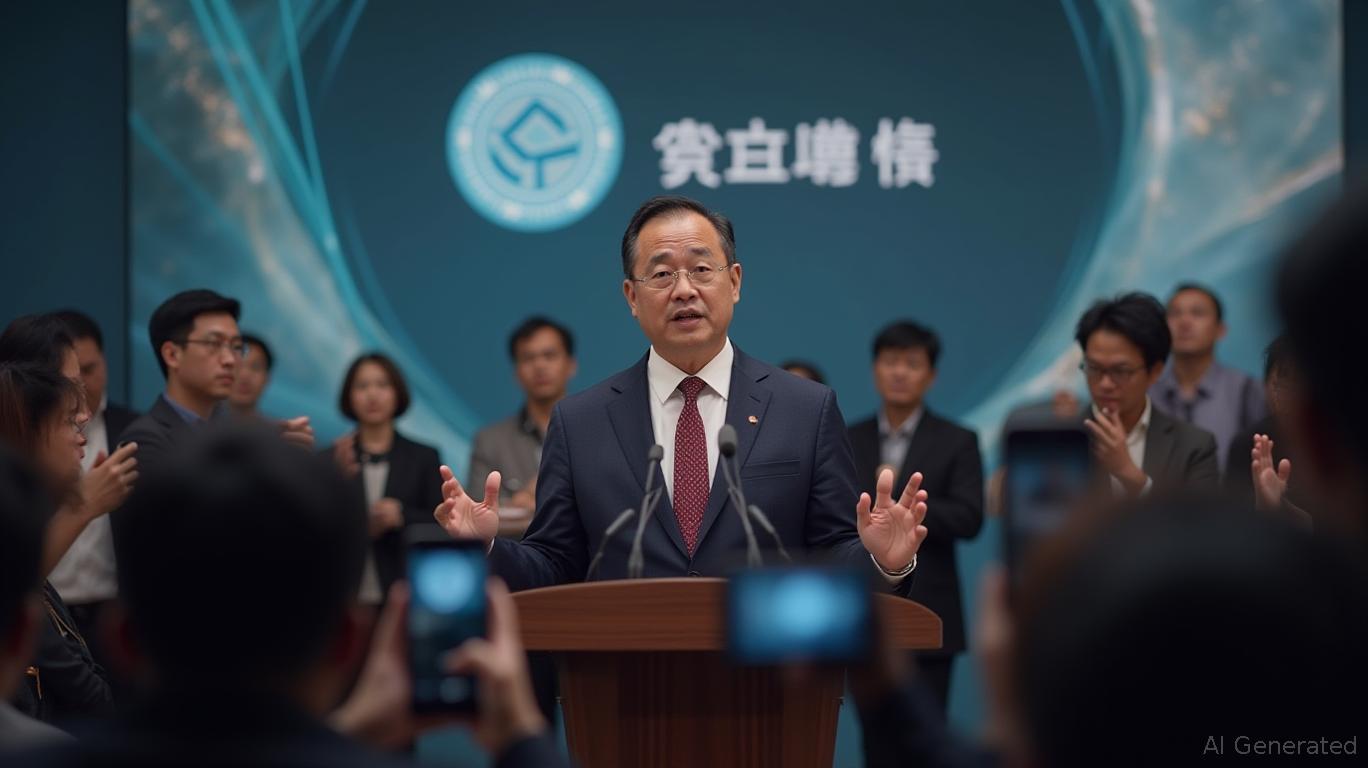Hong Kong's Drive for Crypto Adoption Puts Pressure on U.S. Reluctance in Worldwide Competition
- Hong Kong relaxed crypto rules, enabling cross-border liquidity and attracting global platforms like Binance and Coinbase by 2026. - U.S. political debates intensified, with Trump criticizing Biden's delayed crypto policies and warning of China's growing digital-asset influence. - Regulators urged balanced frameworks, emphasizing innovation while safeguarding investors amid global competition for crypto leadership. - Hong Kong's reforms aim to bridge gaps with Singapore, while U.S. states like Wyoming pu
Hong Kong’s recent easing of cryptocurrency regulations has elevated the city’s status as a strong competitor in the international digital asset arena, drawing parallels with Singapore and marking a deliberate strategy to attract global investors and crypto platforms. On November 3, 2025, the Securities and Futures Commission (SFC) revealed that licensed
The regulatory overhaul goes beyond just trading platforms. New exemptions from licensing requirements now allow up-and-coming crypto businesses to serve professional investors without needing a 12-month operational history, speeding up their market launch (per Cryptonewsland). Custody service providers are also set to gain from broader licensing options, enabling them to handle a wider range of digital assets, as discussed in the earlier Coinotag analysis. These reforms showcase Hong Kong’s goal to develop a strong digital asset infrastructure while maintaining investor safeguards, including mandatory risk warnings and anti-money laundering measures, as Coinotag also pointed out.

At the same time, the debate over crypto policy in the United States has grown more heated, with Donald Trump stressing the importance of keeping the U.S. at the forefront of the industry. In a recent interview, Trump criticized President Joe Biden for adopting crypto-friendly policies too late to influence voters, as reported in
Perianne Boring, who leads the Chamber of Progress, has stressed the need for the U.S. to update its regulatory framework. “Regulations must adapt to the realities of a borderless and innovation-led sector,” she stated in
The contrast between Hong Kong’s forward-thinking approach and the evolving U.S. political landscape highlights the global race for leadership in the crypto space. While Hong Kong’s emphasis on liquidity and cross-border cooperation seeks to close the gap with Singapore, the U.S. must reconcile federal and state-level efforts—such as Wyoming’s initiative to introduce a state-backed stablecoin—and respond to international developments, including a recent
Disclaimer: The content of this article solely reflects the author's opinion and does not represent the platform in any capacity. This article is not intended to serve as a reference for making investment decisions.
You may also like
Kazakhstan's Push for Digital Independence: Crypto Reserves Seek to Broaden Oil-Driven Economy
- Kazakhstan plans a $500M–$1B crypto reserve fund by 2026, managed by AIFC, to diversify its oil-dependent economy. - The fund will invest in crypto ETFs and companies, using seized digital assets and state mining proceeds, avoiding direct crypto holdings. - International partnerships (e.g., Cove Capital, Nvidia) and gold/foreign currency allocations aim to build tech infrastructure and attract investment. - Critics highlight risks around transparency and volatility, while the initiative aligns with globa
LUNA Plunges 80.61% Over the Past Year as Market Fluctuations and Technical Weakness Persist
- LUNA fell 0.74% in 24 hours, with 14.1% weekly and 13.92% monthly declines, reflecting sustained bearish pressure. - Technical indicators like RSI and MACD confirm bearish momentum, with key support levels breached and moving averages underscoring the downtrend. - Backtesting shows limited short-term recovery after 10%+ drops, with weak statistical significance and high outcome dispersion. - Analysts warn LUNA remains in a long-term bear market, lacking bullish catalysts and facing continued downside ris
COAI Token Fraud Aftermath and Cryptocurrency Research: Managing Uncertainty in an Unstable Market
- The 2025 crypto market faces a paradox: innovation coexists with rampant fraud, exemplified by the COAI Token scam linked to centralized manipulation and false AI claims. - COAI's 70% price surge masked 87.9% supply control by ten wallets, mirroring scams like MYX Finance, while Meta's platforms face scrutiny for enabling $15B daily scam ad traffic. - Investors now prioritize due diligence tools like triple-audited projects (XRP Tundra) and AI detectors (DeepSnitch) to identify red flags in governance an

Connecting Proof of Work and Privacy: Psy Protocol's Testnet Pushes the Boundaries of Blockchain
- Psy Protocol integrated four major mining pools into its testnet to validate infrastructure ahead of mainnet launch, leveraging real-world hashrate for network operations and ZKP aggregations. - The protocol combines PoW with ZKP aggregation to achieve over 1 million TPS, aiming to address scalability challenges in Web3 and AI-driven ecosystems while maintaining decentralized security. - Participation from F2Pool and other industry leaders signals institutional confidence, with the testnet phase focusing
